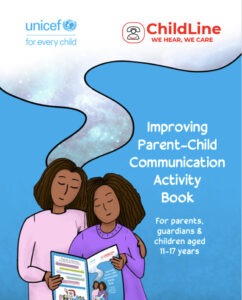[et_pb_section fb_built=”1″ _builder_version=”4.5.7″ da_disable_devices=”off|off|off” da_is_popup=”off” da_exit_intent=”off” da_has_close=”on” da_alt_close=”off” da_dark_close=”off” da_not_modal=”on” da_is_singular=”off” da_with_loader=”off” da_has_shadow=”on”][et_pb_row _builder_version=”4.5.7″ _module_preset=”default”][et_pb_column type=”4_4″ _builder_version=”4.5.7″ _module_preset=”default”][et_pb_post_title _builder_version=”4.5.7″ _module_preset=”default” title_level=”h2″][/et_pb_post_title][/et_pb_column][/et_pb_row][et_pb_row _builder_version=”4.5.7″ custom_margin=”-36px|auto||auto||”][et_pb_column type=”4_4″ _builder_version=”4.4.6″][et_pb_text _builder_version=”4.6.1″]
If my child self-harms, is there a risk of suicide?
Not necessarily. Though the intent to harm oneself may seem like a logical step before suicide, and the two may appear somewhat similar, there are major differences to keep a note of.
Self-harm is almost always used as an emotional coping mechanism; an attempt to keep going or survive. On the other hand, suicide ( ideation) is usually an effort to make pain (emotional or physical) end. It is meant to be a permanent “solution”.
Though self-harm can result in an accidental suicide, if done through dangerous methods, it is not usually a determining sign that someone is suicidal.
How will I know if I should worry?
Some signs of self-harming may be obvious, but some may be quite subtle. In some cases, you may not even know what your child is going through emotionally without communication. Some warnings to look out for:
- Unusual isolation or withdrawal from family and friends
- Reckless or self-destructive behaviour (e.g. speeding when driving, overdosing on medication etc)
- Unusually poor grades
- Use (or excessive use) of drugs or alcohol
- Intense and unwarranted mood swings
- Mentions of feeling empty or hopeless
- Calling themselves a burden to others
- Talk of others not missing them if they weren’t around anymore
- Frequent and unusual comments about wanting to die (sometimes jokingly)
These warning signs don’t necessarily mean that your child is about to attempt suicide. However, they are still to be taken seriously. Your child may need support and may not be comfortable asking for it. These signs are especially important to notice if there has recently been a death in their life or a loss that was significant to them. You should also be wary of the possibility of bullying, mental health issues, or even a family history of suicide or mental health struggles.
Can asking about suicidal thoughts make my child more likely to consider it?
Showing genuine concern for your child’s mental health will not encourage them to consider suicide. On the contrary, showing them that someone cares for them and will always want them to be around will go a long way to helping them open up about how they feel.
Getting help
Open communication and support from family and loved ones can be one of the most important factors in your child’s well-being and willingness to get help. If you do suspect that your child is considering suicide, please seek professional help. The numbers below are from organizations that can provide you with the support you and your child may need, or point you in the direction suitable services.
ChildLine offers free and confidential counselling, in-person or over the phone, to persons 25 and under. Visit childlinett.org/booking to request an appointment if you feel like your child may need some additional support.
ChildLine: 800-4321 or 131
Lifeline: 800-5588
Children’s Authority: 800-2014
Families in Action: 628-2333
[/et_pb_text][/et_pb_column][/et_pb_row][/et_pb_section]







